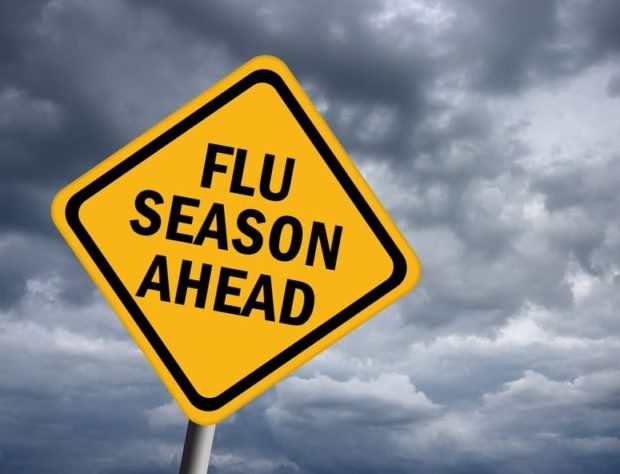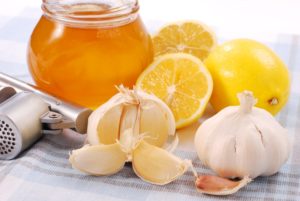Cold or Flu?
Original post: 03Oct2019
Updated: 22Oct2020
It happens every year, somewhere between October and February. In spite of your best intentions, you get the cold or flu…or both! It may seem as if you’re always “getting over” one or the other. If so, it’s time to find out why and what you can do to prevent it. Or at least make it more bearable. Grab a cup of coffee and let’s talk about cold and flu and what you need to know about both.
The difference between a cold and the flu:
- Both are caused by viruses…but very different types of viruses. And the virus that causes the flu changes from one year to the next. This makes it hard to create a vaccine that provides 100% protection from the flu.
- Flu symptoms tend to come on suddenly. Cold symptoms develop more slowly. Both cold and flu share some of the same symptoms: a cough, sore throat and runny nose. However, flu symptoms can also include a high fever and body aches. Flu symptoms also tend to be more severe than cold symptoms.
- It’s also important to mention that a cold or flu can’t be treated with antibiotics. Antibiotics get rid of harmful bacteria in the body. Since the cold and flu are caused by viruses, antibiotics have no effect on cold or flu symptoms.
[/vc_column_text][/vc_column][/vc_row]
True or False: Going out in the cold with wet hair can cause you to catch a cold?
If you said “True”, insert irritating buzzer sound here.
Remember, colds are caused by a virus, not temperature changes. So, going out into the cold with wet hair won’t cause a cold. However, going outside with wet hair may help to lower your body temperature, which isn’t good either.
So…if it’s not cold weather, where do colds and flu come from?
Cold and flu viruses are generally passed from one person to another. The reason people have more issues with cold and flu at this time of the year is simple: more people are gathered together in close quarters for longer periods of time than they are during the rest of the year.
Picture a family gathering to celebrate the holidays. Friends and relatives coming to stay for a few days. All those people gathered together in a closed, confined space for days on end. And someone has a slight case of the sniffles. Next thing you know, you’re waking up with a scratchy throat.
At least, that was generally the case until this year. The global pandemic pretty much forced everyone to be in close quarters for extended periods of time.
(Note: I’m not here to debate whether this pandemic is a hoax or not. I do know that people in my community have become sick due to this virus. These are people I know personally. I do know that people have died. But that’s a subject for another time. My focus is on educating people in the difference between a cold and the regular flu. It should go without saying that the precautions to prevent becoming sick are the same, no matter which type it is.)
And with the first sniffle, your relaxing holiday just turned into a week-long session with a thermometer and box of tissue!
Another source of infection are the things you touch every day. You have a greater chance of getting sick after touching something that has the virus on it and then touching your nose or mouth.
I don’t mean to gross anyone out but these germs can be anywhere! Door handles, light switches, handrails, elevator buttons, phones, keyboards. If human hands have touched it, it probably has germs attached to it!
Update: Prior to the global pandemic, it might have been unusual for a work place to sanitize surfaces more than once a day. That meant that all those virus-causing germs stayed put until they could hitch a ride on some unsuspecting human. Thankfully, work places now sanitize surfaces more frequently than they did before the pandemic. At least, they should be doing so!
These people are most affected:
For some older individuals or people with weak immune systems, a cold or flu can be a major issue. Even a fatal one!
If you’re one of these individuals, you probably already know to avoid anyone who is obviously sick. And if you can’t avoid them because you live under the same roof, minimize physical contact as much as possible. Practice good hygiene by washing your hands frequently and wear a mask when necessary.
Update: If you have plans to visit an elderly person (or someone with a weak immune system), please take the necessary precautions to protect them and yourself. Some sources suggest going so far as to quarantine yourself for two weeks prior to your visit. And don’t feel bad about having to cancel plans if you’re not feeling “quite right”. Better safe than sorry!
..
Did you know…
The flu virus can spread from the infected person to another person six feet away? The virus is carried on tiny droplets produced when the infected person coughs, sneezes or even talks!
It makes sense that the best way to avoid getting a cold or flu is to avoid persons who have the cold or flu.
Unfortunately, avoiding an infected person is not always possible. It’s not unusual for people to be exposed and not know it until symptoms start. Best course of action is to limit your exposure as much as possible.
As I mentioned previously, washing your hands will help. Wash them a lot. Even when you think you don’t need to. And I don’t mean a quick splash of water and done. You need to scrub with soap and water for at least 15 to 20 seconds.
Here’s a tip:
Sing the Alphabet Song or Twinkle, Twinkle Little Star as you scrub. Not only will you reduce your chances of getting sick but the singing will lighten your mood as well. Bathroom acoustics being what they are, singing out loud is totally optional.
Just in case soap and water are not available, keep some alcohol-based hand sanitizer nearby. Or better yet, make your own homemade hand sanitizer, which is just as effective but more budget friendly. Plus, you can customize it with your preferred scent.
Additionally, you can avoid getting sick by boosting your immune system before the season begins. Drinking copious amounts of orange juice after you’re already sick won’t help much.
At this time of year, I stock up on everything I need to make Russian Tea. It’s great warm or cold and is absolutely loaded with vitamins to help boost immunity and ward off the nasties.
..
Here are a few more ways to avoid coming down with a cold or flu:
Get a flu shot:
According to the Center for Disease Control (CDC) this is the best way to avoid the flu altogether. And if you’re in that “elderly/weak immune system” category, you shouldn’t even think twice…just do it! Although the flu shot is not 100% effective at preventing the flu, the symptoms won’t be as bad if you do happen to get sick. Now, I’m not here to debate whether the flu shot “gives” you the flu or not. But there are many people who get the shot every year and never get sick. Just sayin’.
Avoid shaking hands:
Hands are the biggest carrier of germs. Besides, you never know how long it’s been since they last washed their hands. If handshakes are a part of your daily routine, simply tell them you don’t want them to get sick. They will most likely appreciate your concern for their well-being!
Update: Since the pandemic, the fist bump and elbow bump have become popular. Don’t be afraid to use them!
Cover your cough:
Even if you’re not sick, it’s the polite thing to do. It takes little energy to sneeze into your elbow, which is better than sneezing into your hand. Ewwww!
Regularly clean and sanitize frequently touched surfaces:
Especially if someone has recently been ill. I know it’s more work on your part. But if it keeps you or someone you love from getting sick, it’s worth the effort.
Eat right and keep up your exercise routine:
This will help strengthen your immune system. At this time of year, candy and junk food may be a temptation too hard to resist. But all that sugar does nothing to boost your immune system. Be strong…reach for the veggies instead.
Get plenty of rest:
I’ve never been a fan of “the body needs at least 8 hours of sleep” theory. Since everyone is different, it goes without saying that each one has its own requirement for sleep. If you know you need 8 hours to function, by all means, get 8 hours. If you’re awake at the crack of dawn without an alarm to wake you, then go with that. Just remember that being tired and run-down can weaken your immune system.
Reduce your stress:
Easier said than done, especially with the holidays just starting to ramp up. No stress at all, right? But reducing stress (or avoiding it) is necessary for fighting off nasty viruses.
Limit travel:
This can also wear down the immune system. Traveling also exposes you to more people who might be sick. Traveling back and forth between time zones also messes with your sleep patterns…which messes with your immune system. Funny how it’s all connected!
Increase fluids:
That means to drink lots of water. Sweating and having a runny nose contribute to dehydration. Increasing fluids will help with congestion by keeping the mucous in your sinuses loose.
Limit alcohol intake:
Alcohol can cause you to be dehydrated (see above statement) which can weaken the immune system. Plus it has no nutritional value.
So…if you’re traveling for the holidays, you’re already dealing with three or four things on this list. Be kind to yourself. Take care of you!
..
In spite of your best efforts…
You may find yourself on the wrong side of a tissue box. Once you have a cold or flu, there isn’t much you can do but try to lessen the severity and wait for it to run its course. However, there are a few things you can do that might make you feel better in the meantime.
Certainly, there are medications that will lessen or shorten the severity of your symptoms. But before you head to the drug store, consider one of these natural remedies instead. Some of these are included in many over-the-counter (OTC) medications anyway, but without the additives or side effects. They’re also cheaper than most OTC medications and work just as well as their chemical cousins.
Honey and Lemon:
Honey is a natural antibacterial and antimicrobial. Lemon juice can help with stuffiness and congestion. These two ingredients work together to sooth coughs and sore throats. They’re also the main ingredient in many cough and cold medications. Simply add the desired amount to a hot cup of green tea.
Note: Avoid giving honey to children one year or younger. Adult digestive systems can handle the harmless bacteria carried in honey. The digestive system of a young child or infant hasn’t developed enough to handle that bacteria and it could lead to botulism.
Grandma’s Chicken Soup with vegetables:
It’s still largely a mystery as to why this works…but it does. So, go ahead and enjoy as much as you want.
Herbal tea:
The best herbs for combating a cold or flu virus are Oregano, Ginger, Peppermint and Echinacea. These herbs pack a punch as far as being anti-bacterial, anti-viral and anti-fungal. Take your pick but remember that fresh leaves are better than a commercial product that contains additives. Enjoy two or three cups a day while symptoms last.
When using oregano, peppermint or echinacea, use one teaspoon of leaves to about one cup of boiling water. Cover and steep for ten minutes. Strain out the herbs and enjoy. Add honey and lemon to sweeten, if desired.
For ginger tea, cut two or three slices of ginger (about 1/8 of an inch thick, with the skin on). Add about one cup of boiling water, cover and steep for twenty minutes. Strain and enjoy. Add honey and lemon, if desired.
FYI…herbal and green tea also counts toward your daily fluid intake.
What if the virus lingers longer than usual?
As bad or inconvenient as the cold and flu can be, it should run its course in about a week. If you are still having symptoms after about two weeks, you should see a health care professional. A cold or flu that hangs on too long could lead to more serious infections like whooping cough, pneumonia and severe acute respiratory syndrome (SARS). Again, this can be fatal for the elderly or immune-compromised individuals.
If you’ve had the flu before, you know the body aches that can go along with it. With the current pandemic, symptoms may be more severe than what you’re used to. Definitely seek medical council if you’re having symptoms out of the ordinary.
You may have discovered firsthand how easily and quickly a virus can spread. So, it makes sense to stop the spread before you or someone else gets sick. By doing so, you might actually enjoy that time spent cooped up with the family!
Do you have a tried and true cold or flu remedy? If so, I’d love to hear about it. Just leave a comment in the box below. Until next time….
Stay healthy, my friends!
lisa
P.S. I have worked in the medical field, specifically patient care, for more than 20 years. But I am not a doctor. None of the information provided here should ever take the place of your own doctor’s advice. Please, do not hesitate to seek medical attention if you feel that your symptoms are not normal.
If you like what you see, click on the subscribe button so you don’t miss anything!
I promise not to spam you! By clicking the subscribe button, you agree to my privacy policy.










